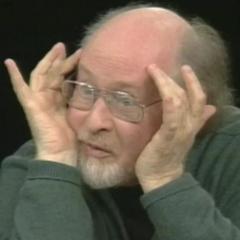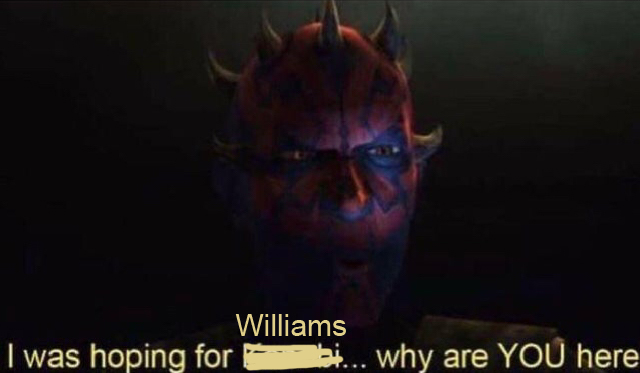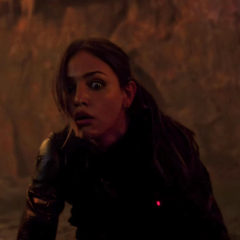Leaderboard
Popular Content
Showing content with the highest reputation on 03/01/23 in all areas
-

Star Wars Disenchantment
blondheim and 3 others reacted to Datameister for a topic
Exactly. You and I both know the terrible consequences you would face if you fully shared your brilliance. Go ahead, tell them the bad things that would happen!4 points -
As Yavar alludes to in his examples, the function of film music in KING KONG, its style and narrative use, is the same as in the sound films and silents that preceded it. So the notion that KING KONG was the first "proper film score" or whatever, is of course erroneous. Rather, the position that KING KONG holds in film music history has more to do with advances in audience reception (in regards to sound film and music), than film music per se. When it came out, and became the hit that it became, it was also a sign of the natural position that diegetic and non-diegetic music could hold in a sound film without causing confusion. When the full orchestral forces play as the explorers strumble upon the tribal village, the non-diegetic "add-ons" to the diegetic tribal instruments were natural and required no further exposition for the audience. Due to its success, it was one of the earliest and most prominent examples of how far sound film and music had come at this point; basically the template of how we see and listen to films even today.4 points
-
It's a fantastic score and it really tells the story through music. As a huge fan of the Titanic score I also love the titanicisms towards the end of the score, especially in Bad Parents (I think that's the cue) where the metal percussion, the choir and the snare drums etc all just work so well. I also think that the choir motif that appears in this cue plus I think Navi Attack feels a bit like Death of Titanic, when the ship is really going down. I checked Franglen's spotify page and he now has over 7 million listeners which is really impressive compared to other film composers (Zimmer, Williams and Shore are in a league of their own listener's wise) but Franglen has gained a crazy amount of listeners in a really short time so the score is clearly connecting with people. I can't wait to hear what he does next, both in the Avatar sequels, and in any other movie or show he might be working on. Cameron really made the right choice in giving him the job and Franglen describes the process of getting the job in the 1 hour interview.4 points
-
Next in my series is another JW masterpiece, based on LLL's wonderful new expansion, which revealed lots of previously unknown unused tracks, alternates, and filled in major gaps in the soundtrack album as well as restoring the proper order of cues revealing a structure of a wide range of seemingly disconnected musical elements converging and coming together satisfyingly, mirroring the movie's theme of distant cultures growing to understand each other. As usual I will explain the cues' film usage where it's fitting. The spotting is certainly not wall to wall, though since I didn't restore even the source music found on the LLL set, let alone all the "needledrop" recordings used in the film, it's a tiny bit misleading if we'd want to look at purely music, not score: The state court scenes are mostly left unscored, but nearly all of the final 40 minutes are scored all the way through. Starting with this project, I'm doing something some previous ones like Presumed Innocent could've benefited from: burning subtitles into the video to help with cues for dialogue-heavy scenes where the sync points aren't necessarily for shot changes or physical actions but for a specific line that changes the tone or topic, of which there are several in this movie. Syncing up cues helped me appreciate many cues in a new light or a deeper way - like Discovering the Bible, really seeing how the initially 2 disparate textures start melding and come together by the end; or Adams' Address to the Court, where I was initially confused by the usage of obvious synth voices in this fantastically varied choir-heavy score - the first one scores Isabella's complaint letters about American courts, probably illustrating her "unnatural" views of courts as mechanical toys to play with, to do as she says, instead of idealistic independent entities, the second, darker one scoring Adams reading aloud the article about how slavery is the natural order of things, hopefully no need here to describe why the usage of "unnatural" synth voices instead of a real choir could be appropriate. Thanks to @Jay for helping with the selection and answering some background information questions! Introduction is actually a wild vocal take the music people used here, but I included it because why not. Retribution is fully unused, and to be honest I can see why, even if it's a great piece. If synced up to the final film footage (the opening may have been extended), the percussion and flute scores Cinque's struggle as it's starting to bear fruit, the male choir scores him lifting the nail, the choral Cinque's theme scores his newfound chance, and things start to escalate as he frees himself. The rhythm kicks up as the captain picks up his musket and Cinque approaches him, then it fades out when the new captain removes his Excalibur from the old captain's body like he removed the nail. I removed the second wild humming take that's included in the film and LLL since it would overlap with the next cue, July 4, 1839, which is mostly unused. The dark soundscape scoring the uncertainty (unused) temporarily clears up as the helmsman states he'll head for Africa. JW's emotional shot-specific scoring for the night scene was replaced by a choral take of Cinque's theme, dropping the twinkles for the stars, its descending variant scoring the turn, and the Seven Years in Tibet/RotS strings with added choir scoring Cinque desperately taking over and correcting the course himself. Steering East is again unused, and in my opinion should be here where the title doesn't describe it very well, for the scene of the new crew landing on what they think are African shores, gathering water and coming across a man on a proto-bicycle. (For an alternate sync idea that might actually work better, see this post.) The Capture is mostly used, only a small portion was edited out when the ship lands (the film was edited down a bit at this point too), and the ending was replaced with one of the wild solo humming takes, removing the only musical representation of the Queen of Spain coming from JW, since the rest of her scenes contain source music at most. Introducing John Quincy Adams is used as is. Meeting of the Minds is a strange case - it's more like semi-wild mood music than specific scoring adhering to sync points, and it runs longer than the scene, where it's only partially used. Counsel Meets Client, The Ship Remembers, Visiting Adams and What Is Their Story? again are used as is, but Learning To Count is the same case as Meeting of the Minds - not really specific and runs a lot longer than its scene. Tale of the Lion's Tooth is used as is. The Capture of Cinque and The Crossing are complicated - for this video I had to shorten the storm/birthing scene and entirely remove the feeding scene between the suicide/lashing and the mass drowning scenes. In the film, parts of Capture of Cinque are looped over these and other parts of the same track, and even mostly in place of or over The Crossing - only the opening minute and the Spanish guitar part remains from it, edited, then the ending's replaced by solo humming again. Tales of Horror remains untouched except for a percussion overlay coming from The Ship Remembers (if you don't count that the original take's ending was replaced by the second revision, replicated here instead of sticking with the LLL edit), same with Discovering the Bible. After a long unscored section, including the victory on state level, The Letter to Massachusetts and Cinque's Legal Mind are used as is. The footage for African Violet had to be edited very slightly. Adams' Address to the Court and Adams' Summation are used as is. The Verdict is edited slightly in the film. Liberation of Lomboko is used as is, Going Home starts with the choir only mix, the soloist only comes in starting with the Civil War shots. The film starts the credits with a third solo humming take, then used Dry Your Tears, Afrika as is on the LLL, with more obvious Lomboko tracking edit points and the ending cut short - if we use only it and The Long Road to Justice like I did here, they fit the credits' length well. The Capture (alternate) is basically a different mix of the main program version. The Ship Remembers (alternate) is a slightly different take with different percussion overlay usage. What Is Their Story (alternate) is the original take, featuring another Adams rendition in place of the revision's DYTA. The Crossing (alternate) was written for an even shorter cut, I couldn't really come up with a good way to edit it down. Tales of Horror had an original take with Cinque's theme scoring his outburst, more as a low moment where he can't hold in his despair any longer - I had to shorten this footage for this original ending. The first revision doubles down on this idea and utilises the longer edit to add in another statement that helps the theme climax, still scoring Cinque's despair. The second revision, ultimately used in the film, takes the first revision's structure but pulls Dry Your Tears, Afrika onto it, making it a moment of uplifting triumph, where Cinque stands up for himself and demands the justice he'll ultimately receive. The third revision keeps the DYTA idea, but tones it down significantly, more as a quiet release than a triumphant climax. Discovering the Bible (alternate) is a different original approach - while the revised film version starts with representing the Africans with percussion, the Bible discussion with harp and Cinque on flute, and the church scenes with semi-religioso strings and brass, and eventually starts melding them, moving Cinque to different instruments and stops changing styles with the latter back and forth cuts, this version represents the Africans with sad strings (probably coming off of one of the Cinque versions of Tales of Horror), the Bible scenes, while still prominent in harp, are also scored with strings and multiple kinds of woodwinds while the church is mostly brass-based - they still meld but the cutting back and forth is not so obvious. I had to extend the ending a bit so Cinque's theme entering would sync up with the cut back to the jail. Cinque's Memories of Home, a revision of Cinque's Legal Mind, sets the "communication" theme on cello, solo vocal humming and percussion - IMO moving the material a bit too far to the east from the US, possibly why it wasn't used. Going Home (alternate) is the choir take without the solo vocal, as it is partially used in the film. And finally, an idea by @BrotherSound: Cinque's Theme (solo flute) is also 2:06 long, like Going Home, why not try to see if it fits. In my opinion, it kind of does, many of the percussion hits and phrase borders match with shot changes.3 points
-
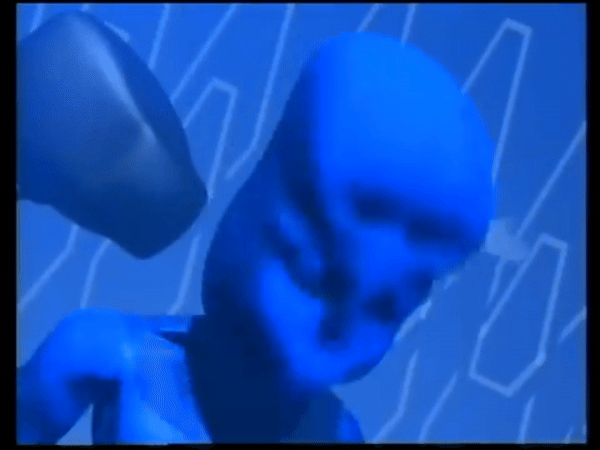
Dial of Destiny: "Huge score" with 2 hours of music, 60+ cues, according to Mangold
Smeltington and 2 others reacted to mrbellamy for a topic
That's a fun tangent of its own, what were the John Williams scores that got us most excited? I think my own shortlist would be Chamber of Secrets, Prisoner of Azkaban, Revenge of the Sith, Tintin/War Horse (tied), Force Awakens, and Last Jedi Tintin/War Horse is a bit of an anomaly but it was just the fact they were coming out together, seemed like big music-heavy projects, and it was three years' worth waiting for a Williams score during which a Harry Potter return had been teased and dashed...holy blueballs I can't put Rise of Skywalker all the way up there just cause there were more "knowns" by that point, especially with JJ back and having a good idea after TLJ what version of "sequel Williams" it was gonna be. I did think there was a chance he could get crazy on VII or VIII and that was exciting. Since they ended up being more on the conventional side of excellence my anxiety settled down to 9/10 from 10/10 haha. Weirdly I don't recall being super hyped for Crystal Skull. I was definitely excited but I guess I've just never been as deep on Indy? The other Spielbergs, it's hard to really get myself as pumped for the dramas. Even though I have many favorites, imagining the score is harder so it's always more wait-to-hear. I might have been more locked into the potential of something like Memoirs these days. I remember looking forward to WotW but I knew it wouldn't have the big lush themes I loved most. And I was excited about BFG because I knew it'd be very music-heavy, but I also had a sense what that was gonna be. I also have great memories anticipating Book Thief because it was so random and a short wait from the announcement. I'm solid on Dial of Destiny rn. It'll be really good, but I guess I also feel like I know what to expect. I like "Helena's Theme" but I'm not obsessed with it, and the trailer didn't blow me away so I have kinda safe boundaries for what I want and I'm also at peace with it being the last ever JW. I'd be happy with a very normal action-adventure score. I don't anticipate wild stylistic turns from him anymore so that'd be awesome but not something I'm really thinking about, and then overall it's just variable how well the movie and various sequences are constructed technically and emotionally, and how locked in he gets. Could be fantastic!3 points -

Star Wars Disenchantment
blondheim and 2 others reacted to Schilkeman for a topic
I have read all his posts, don't bother. It's like using the bible to prove the bible. It's insular and circular, "I am right therefore I am right," nonsense. And even if everything he has said about the Disney era being planned and well-thought out were true, it would be like planning a trip to Houston. It can be planned down to the minute, you still end up in the steamy crotch of America. No sane person would plan for this. I liked Andor. Anybody else like Andor?3 points -

Planned but unused album tracks for E.T. The Extra-Terrestrial
Jurassic Shark and one other reacted to BrotherSound for a topic
So, E.T. appears to have had a number of planned album tracks that were never used. I recently noticed a number of cues in John Williams' original sketches are marked 'In Album', but aren't actually heard on the 1982 album as it was released. The cues with these 'Album' indications are: 1M1 Revised - The Forest (the only one on the list actually on the OST) 2M3 Alternate Beginning (with an indication to segue to bar 5 of 2M3) 3M2 Meeting E.T. 5M2 E.T. Raids The Icebox (with an indication to overlap the downbeat of bar 54 with bar 43 of 5M5) 5M5 E.T. Gets An Idea 9M1 Keyes Enters The House 10M1 He Came To Me (with an indication to segue to 9M1 at the end) I've reconstructed the two cue combinations: E.T. Raids the Icebox and E.T. Gets An Idea He Came To Me and Keyes Enters The House So, I wonder what the story is here? The LP is already about 40 minutes, so there wouldn't have been enough space for its current contents plus all these other cues. Could a double LP have been considered? Or maybe these were planned before the unique OST arrangements were created? Who knows...2 points -
Well, there is this: And for the sequel:2 points
-
Did what happen? This has been Zimmer's model for decades now, from Remote Control, Media Ventures and beyond. The whole mentorship thing whereby he composes a main theme, and some of his students do other bits in his scores. THE ROCK is a masterpiece.2 points
-
I have Odna on CD somewhere. I should give it another listen; I had no idea it was written so early! I have Metropolis and Die Nibelungen by Huppertz on CD, and while there's much to admire and the overall concept of big late-Romantic leitmotif scoring is surely there, Steiner's Kong still feels more like a through-composed score. Die Nibelungen in particular, in complete form, is very much an endless sequence of the same motifs repeated over and over again. With different orchestrations, certainly, and with the occasional standout moment here or there, but they still feel (to me at least) much more redundant than the typical Hollywood score that is usually attributed to Steiner, Korngold, & Co. This may apply less to Metropolis, which is also much more modern in parts. I actually have the Blu-ray here and am looking forward to watching it with the original score for the first time. In the end, it seems to me that the fact that silent film music had to uniformly score the entire film from beginning to end without either contribution or competition from dialogue and effects, combined with the rather wild concept of having a huge mammoth score composed for just one performance at the premiere, may have given composers (or at least Huppertz) a frame of mind that's distinct enough from that of the early Hollywood sound composers to draw a certain line between the two. My impression at least is that the Huppertz scores, for all their merits, and Die Nibelungen in particular, are much more Gebrauchsmusik (with the negative connotation that it can't stand on its own, or rather needs serious curating to produce an adequate listening experience) than the typical Hollywood scores that usually, for whatever reason (perhaps because so many were written by exiled opera and theatre composers who used films as a vehicle to keep writing "serious" stage music) form a pretty coherent and entertaining whole. Militant anti-completists like Thor may not see anything in my argument, but I certainly think that at least many big scores from the Hollywood Golden Age up until the end of its semi-revival at the end of the century, were conceived as through-composed works with drama-musical development and thus can hold their own in mostly unedited form without the film. Scores to more modern films which rely much more on sound effects and sound design than on a "classic" score and therefore often have only a smaller number of less coherent cues, are certainly a different category.2 points
-
2 points
-

Avatar 2, 3 and 4 or how James Cameron stopped worrying and pulled The Hobbit on us
crumbs and one other reacted to leeallen01 for a topic
He's the leader of essentially the rebellion against the invading humans. He has the military skill and knowledge of how the humans operate, so he takes the lead in most confrontations. in reference to Cameron's conments; while I'm fine with an exploration of a more negative Na'vi side and positive human side, Cameron hasn't exactly just painted the Na'vi as all good and the humans as all evil, like some haters narrow-mindedly state. In fact both films have portrayed good and bad actions of Na'vi and humans. E.g The scientists studying the Na'vi are good and risked their lives to help them. Also Jake was literally one of the military and yet he risked his life to help them. So too did Trudy, who actually died to save the Na'vi. Even Selfridge, the man in charge of the entire operation to pillage Pandora's resources, was ultimately very clearly not happy with the military intervention, and even gave the scientists a chance to evacuate the Na'vi clan before Quarritch and his forces got there. And of course in The Way of Water, we are shown a frightening side of Neytiri, as she was very willing to kill Spider, an innocent human child, in order to save her own family and seek revenge for her own loss. Doesn't seem all that black and white to me.2 points -
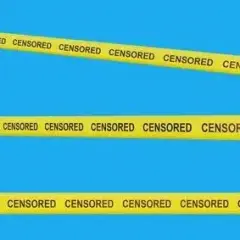
Dial of Destiny: "Huge score" with 2 hours of music, 60+ cues, according to Mangold
Not Mr. Big and one other reacted to Jurassic Shark for a topic
The Post.2 points -
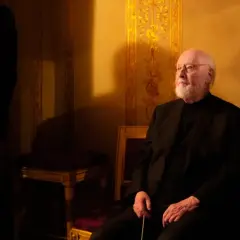
Dial of Destiny: "Huge score" with 2 hours of music, 60+ cues, according to Mangold
Joni Wiljami and one other reacted to Tom for a topic
In the last 15 years, The Force Awakens tops the list for me. Tintin was a big deal for me as it was the first cartoon (yes, I know) that Williams would score. They were both slight initial letdowns to me, but that was due to my insane expectations more than anything else. I still think had Williams opened with or at least included a concert version of the heroic version of Tintin's theme, it would be considered a top ten score for many more people.2 points -

Star Wars Disenchantment
Demodex and one other reacted to GerateWohl for a topic
George Lucas opened Pandora's box, when he brought back Darth Maul. Since then this reanimation of dead characters, Palpatine, Boba Fett, Ashoka or even reanimating killed characters within one and the same feature like the grand inquisitor and Reva in the Kenobi series, has in a way destroyed the franchise by adding a certain ridiculousness to it.2 points -
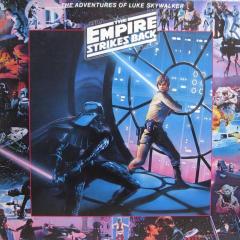
Star Wars Disenchantment
enderdrag64 and one other reacted to Tallguy for a topic
So this is one hell of a coverup. Never have so many people reported mishaps and changes in directions to hide the fact that THEY KNEW WHAT THEY WERE DOING ALL ALONG.2 points -

Star Wars Disenchantment
Chen G. and one other reacted to Datameister for a topic
No, it's a gift that keeps on giving!2 points -

The Official La-La Land Records Thread
ThePenitentMan1 and one other reacted to Manakin Skywalker for a topic
2 points -

First Impressions: The FILMS of 2023
Romão reacted to Koray Savas for a topic
Looking forward to: Killers Of The Flower Moon (Scorsese) Oppenheimer (Nolan) Mission: Impossible - Dead Reckoning Part One (McQuarrie) Barbie (Gerwig) Dune: Part 2 (Villeneuve) Asteroid City (Anderson) The Wonderful World Of Henry Sugar (Anderson) Poor Things (Lanthimos) Beau Is Afraid (Aster) Civil War (Garland) The Killer (Fincher) May December (Haynes) The Holdovers (Payne) Knock At The Cabin (Shyamalan) Blitz (McQueen) Napoleon (Scott) Strange Way Of Life (Almodóvar) How Do You Live? (Miyazaki)1 point -

Planned but unused album tracks for E.T. The Extra-Terrestrial
Jay reacted to BrotherSound for a topic
Same as the film version (and LLL 1-04), with 2M3 Alternate Beginning (with piccolo) replacing the first 16 seconds of 2M3.1 point -

Planned but unused album tracks for E.T. The Extra-Terrestrial
Trope reacted to BrotherSound for a topic
Yes, roughly the first 16 seconds of 1-04 are 2M3 Alternate Beginning. 2-12 has a different take of 2M3 Alternate Beginning with a solo E-flat clarinet in place of the piccolo (0:00-0:16), but also retains the bars the insert was meant to replace (0:16-0:26).1 point -
Agatha Christie is my thing and I don't like Knives Out.1 point
-
No more Williams until April. Unless it comes from another label. Alas! Woe is us1 point
-
1 point
-
Goldsmith at 20th - New series of releases by La-La Land!!!
Raiders of the SoundtrArk reacted to 1977 for a topic
I wouldn't be averse to a re-issue of sorts via this series of LLL's The Edge, although it sadly won't afford an opportunity to right the wrongs of the artwork on their first release.1 point -

New Podcast Series: The Complete John Williams Television Music Walkthrough
Thor reacted to SilverTrumpet for a topic
Finally got to catch up this morning. Keep it up! I love the format, style, your speaking voice. It's just wonderful all around. Looking forward to part 3.1 point -
Careful, MV will ban you from buying any LLL releases. @filmmusic, I was thinking of this beauty:1 point
-
The Official La-La Land Records Thread
MikeH reacted to Yavar Moradi for a topic
It’s really, really good. Might be Robert Downey Jr’s greatest performance as an actor, honestly. And I think the score may be Barry’s greatest (if perhaps not my favorite) after Dances With Wolves. IMO it fits the film perfectly and not in a generic way. I think he was inspired. Hear @Jay; check out the opening sequence of the film. This is not one-size-fits-all Barry; to me it seems very specifically tailored to this film: Yavar1 point -
My god! Don't tell your friends!1 point
-
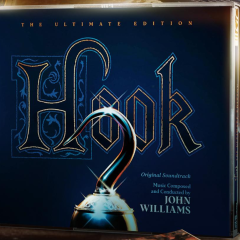
Goldsmith at 20th - New series of releases by La-La Land!!!
Yavar Moradi reacted to Jay for a topic
I put together a google doc showing everything Jerry did for 20th Century Fox (there's one tab for film and one tab for TV) https://docs.google.com/spreadsheets/d/1FqKNbhT8cylTIFNSrB_R2QgYFtzNH3P8Ey_Vvd0j5hM It looks like there's a lot of scores he did for 20th still awaiting a definitive edition, potentially through this LLL series! What are people here most hopeful for? Thank you to @Yavar Moradi for correcting some of my mistakes in my initial version of the doc1 point -
The two times that the temp music (other than Star Wars) really stood out to me was The Rocketeer and Jaws (where we meet Rex again). For some reason Jaws didn't bother me. But The Rocketeer felt like it would have been better off just playing The Rocketeer. It was either too close or not close enough. I still loved the episode. Also the fact that the designer of the B-Wing was a Mon Cal named Quarrie, or M.C. Quarrie.1 point
-
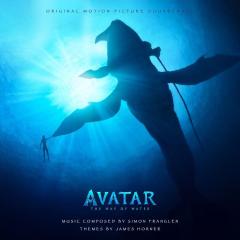
Avatar 2, 3 and 4 or how James Cameron stopped worrying and pulled The Hobbit on us
leeallen01 reacted to Mr. Who for a topic
I read this as well and I am intrigued by the whole idea of showing other sides of the na'vi and the humans and that the humans aren't all like the RDA . Jon Landau also said that Earth will appear as a location in one of the later movies! The fact that all the scripts were finished before they even started filming the second movie is great. The actors read all the scripts and know the entire character arcs before filming 2 and 3 back to back.1 point -
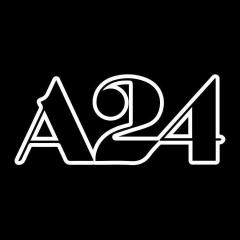
The "(Fill in the Blank) Has Died" Thread
Naïve Old Fart reacted to A24 for a topic
This looks like a beautiful release (if you're into vinyl).1 point -

Star Wars Disenchantment
enderdrag64 reacted to Datameister for a topic
Oh, I have no interest in trying to persuade you. I'm just fascinated with your answers. How about this—what are some examples of multi-decade franchises whose films were not planned out? And how do you know?1 point -
I choose not to speak about such personal things on this forum. Feel free to make your point, though. What parts do you not scroll past? Yes, it was a reference to Order 66... and the Battle of Endor... and the Battle of Exegol... just to name a few. Do you think these were the pinnacle of his plots, plans, and traps? Which of them were successes for him? The ROTS was written two decades after The Emperor was made the true villain of the OT. How "last minute" do you think Palpatine was added to the sequels? Oh, I do. Trust that I'm laughing at you off-screen. If you answered my direct questions, I might respect you more. Which of Chen's arguments are coherent and have a great deal of thought and research behind them? When has he been proven factually or canonically correct? No, it just implies that Palpatine may have had other irons in the fire of which the Jedi - and the audience - were not aware. Right. Other Orders were not yet ready... or it wasn't yet the right time to move forward with those pieces on the board. What circular arguments? What is your argument or position regarding Star Wars? I'm unique on this forum in that I have Star Wars credibility. How about you? I think George decided to refrain from making it Order 666, which would have been too on-the-nose. You don't know that. But it should be obvious that it's what LFL wants their audience to conclude. Those who have perceived the making of 'the new Star Wars' in this way are on the far side of the galaxy. No, Iger said in his book that George Lucas was told that his sequel treatments would not be used for the upcoming trilogy, as he has assumed they would. 'Kathy promised!' He then quit the company. I can't think of anything. What do you got? Because you simply disagree with me? Because you can't fathom - or want to publicly admit - that it's possibly/likely that you are being played? They aren't wasting theirs. You are wasting yours.1 point
-

2022 FOR YOUR CONSIDERATION studio sites (featuring music)
enderdrag64 reacted to Mr. Who for a topic
It’s too bad that Apple TV+ hasn’t uploaded any FYCs for their shows.1 point -
2022 FOR YOUR CONSIDERATION studio sites (featuring music)
enderdrag64 reacted to 1977 for a topic
Time's running out. Come on Disney, give us The Way of Water FYC!1 point -
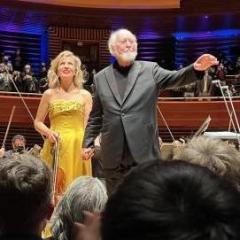
Simon Franglen's AVATAR: THE WAY OF WATER (2022)
LSH reacted to Taikomochi for a topic
Indeed, this is an incredible score, perhaps my favorite of the decade so far. Beyond the score being a loving tribute to Horner, I’m just astounded at how well the themes are developed, all the smaller ideas like Payakan’s theme from its ethereal introduction to its badass rendition closing “A Farewell to Arm”, but especially the family theme. Just admire how Franglen gives it such a cathartic statement in the middle of “Bad Parents” before closing out the piece with a warped version of the same theme. And then just a short while later, he transforms it again in the transcendent “From Darkness to Light”. I’m having a difficult time remembering the last time I heard a new score that was this narratively satisfying. This is a major work of film music composition, pure and simple.1 point -
2022 FOR YOUR CONSIDERATION studio sites (featuring music)
enderdrag64 reacted to John F for a topic
Hoping Wakanda and Water get uploaded.1 point -
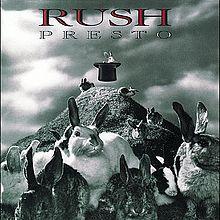
The "(Fill in the Blank) Has Died" Thread
bruce marshall reacted to Naïve Old Fart for a topic
Aaw, man. I love his score, for SOLARIS. What a sad loss.1 point -
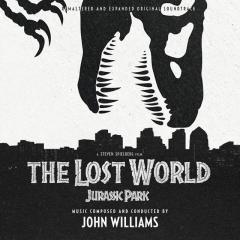
Star Wars is better than everything
GerateWohl reacted to Luke Skywalker for a topic
And sadly, for me thats preferable than some of the crap they call music in the live actions…1 point -

New Podcast! The Baton: A John Williams Musical Journey
KittBash reacted to Trumpeteer for a topic
Folks, Happy New Year! If you have not had the chance to listen to the new episode of The Baton featuring a discussion of the score to The Fabelmans, you can watch it in the player below. It was fun returning to the show after a two-year hiatus. Also, I'm also starting a new podcast that will take us through the first 90 years of the Academy Award for Best Original Song. That podcast, called The Best Song Podcast, will mention John Williams at various points when he earns Oscar nominations for songwriting. Until then, I hope you'll enjoy the episodes, which will be found at this website and on the Podbean app beginning tomorrow (January 2) until it's approved for other podcast platforms.1 point -
I’m still suuuper gay for it, yeah.1 point
-

The Custom Covers Thread
BrotherSound reacted to Steffromuk for a topic
Classic Planet of the Apes collection1 point -

Your favorite big sexy opening action track
Yavar Moradi reacted to GerateWohl for a topic
This for me:1 point -
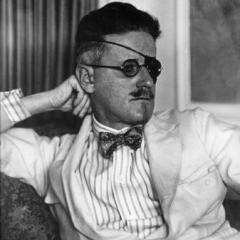
Nathan Johnson: Glass Onion: A Knives Out Mystery
Fabulin reacted to TheUlyssesian for a topic
The score is magnificent. Just saw the film. It truly shines. The middle eastern sounding main theme in killer. This score has genuine sweep and scope and narrative storytelling. Very very good work! One of the best of the year.1 point -
1 point

